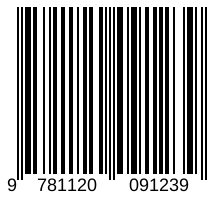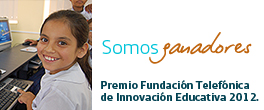In this new mission, students had to guide Fawkes through the Chamber of Secrets so that he could deliver the sword to Harry. Thus, for each level passed, some magical lamps lighted up to mark the way. This time, students in Level 3 completed a short fact file about a wild animal and wrote a... Seguir lendo →
HOGWARTS MISSION 3: A BOOK REVIEW
Easter is around the corner and we will have time to relax and recharge body and mind for the coming term. What don't spend our free time reading a good book? If you are not sure which one to choose, student in Level 5 can recommend you some books. Pascua está a piques de chegar... Seguir lendo →
MY MUM IS A POWERFUL WITCH
To celebrate 8M, we dedicated Mission 3 to all the mums in class 4. Just like every year, we knew, learnt and recognized some women’s labour in different areas but, in the English class we focused on some special women, OUR MUMS. We wanted to celebrate their achievements and increase visivility of their work as... Seguir lendo →
My village Mission
The Marauder's Map has been completed so, we will be able to find Ginny. This time, my students had to write about the place they live. Some of us live in a very small village called Forcarei . Others live in the country or in a small village nearby, so when they started making notes,... Seguir lendo →
HOGWARTS MISSION 2: A TV SURVEY
Hogwarts Mission 2 is completed in Level 4. The Chamber of Secrets is already open! https://vimeo.com/912760849?share=copy In this new mission, students found out about TV interest in their class and wrote a short report.To do so, they had to beat different levels: Level 1: Write a questionare Level 2: Interview a friend Level 3: Wite... Seguir lendo →
Hogwarts Mission 2 Level 3
What an amazing mission! Students in Level 3 were able to open the Chamber of Secrets. And now, they can speak in Parsel as Harry Potter does. Incredible! Que misión máis alucinate! Os rapaces e rapazas de 3º foron quen de abrir a Cámara dos Segredos e xa falan en Pársel coma Harry Potter! Flipante!... Seguir lendo →
Hogwarts Mission 1
First mission in Level 5 is completed. Our emails are ready to be sent and we'll look forward to our friends' emails about their hobbies, families and so on. https://vimeo.com/896323243?share=copy
Hogwarts Mission 1 : Our school leaflet
Hogwarts Mission 1 in Level 6 is over. Although it was a long hard task, the final leaflets were awesome. A nosa primeira misión en 6° está rematada. A pesares de que nos levou o seu, os folletos finais quedaron xenial. This time, our work plan promoted both individual and group work. The main goal... Seguir lendo →
Hogwarts Mission 1: My routines
Our first mission in Level 3 has been a great success! Everybody was able to achieve the four clues and find the entrace of the Chamber of Secrets. A primeira misión en 3º de Primaria foi un éxitazo. Todos conseguiron as catro pistas para atopar a entrada da Cámara dos Segredos. We don't know what... Seguir lendo →
WORLD MISSION 5: ART GALLERY GUIDE
The end of the school year in Level 4 was really awesome. In this last mission, students learnt about different types of portraits, such as self-portraits, abstract portraits or profile portraits. They discovered the artworks of some famous artists like Picasso, Sargent or Renoir and compared their painting styles. They were impressed with the Picasso's... Seguir lendo →
World Mission 4: Animal Fact File
World Mission 4 in Level 5 was a hard challenge but I knew they could do it. They had to search on internet for information about an animal, write a draft and create a slide show with text and images using LibreOffice Impress. They were delighted with this experience so, I am sure we will... Seguir lendo →
World Mission 4: At the restaurant
In this new mission, students in Level 4 had to write in pairs a short dialogue in a restaurant. Nesta nova misión, os alumnos e alumnas de 4º traballaron en parellas para escribir un pequeno diálogo nun restaurante. They organized the task following four steps. A tarefa estaba dividida en catro pasos. 1st Level: Desing the... Seguir lendo →





























